Enhancing institutional capacity of public authorities and stakeholders and efficient public administration.
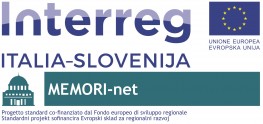
MEMORI-net aimed to create a common institutional framework for managing the rehabilitation pathways for post-stroke patients, thanks to which all the centres involved in the various rehabilitation phases will adopt a common Diagnostic Therapeutic and Assistance Pathway (DTAP) with standardised protocols for evaluating patient deficits and for integrated cognitive-motor rehabilitation, and an ICT platform to facilitate cooperation among institutions, stakeholders and families.
MEMORI-net was a joint effort aimed at improving the post-stroke rehabilitation management strategies and establishing common diagnostic and therapeutic protocols based on the most advanced scientific knowledge and best international practices. With over 4000 new cases per year within the program area, stroke is one of the leading causes of intellectual and motor disability. Since stroke can affect people of productive age, it has a profound impact upon families, the healthcare system, and the entire local economy. Although stroke is an acute vascular injury suffered by the brain, it can cause disabilities throughout the body that require multidisciplinary rehabilitation efforts, which aren’t all available at every centre within the program area. Stroke rehabilitation therefore involves various institutions, and requires considerable coordination, which is hindered by the absence of shared protocols, the limited use of home rehabilitation and ICT technologies, the lack of tools for linguistic minorities, and legal limitations in the transfer of personal medical information. In order to resolve these territorial issues, MEMORI-net aimed to create an inter-regional network of excellence that will connect Stroke Units and University Centres specialised in diagnostics and ICT technologies with Rehabilitation Centres, Health Spas, and Stroke Patient Associations present within the program area. Through a excellent communication and training program for medical teams and families of patients, MEMORI-net fostered the mutual exchange of knowledge and the improvement of rehabilitation practices. MEMORI-net contributed to the EUSALP and EUSAIR strategies by providing a network for the clinical validation of innovative rehabilitation products, and attracted patients from other regions. MEMORI-net’s impact extended beyond the project’s purpose by opening up new prospects for the rehabilitation of other neurological diseases.
MEMORI-net’s primary result is been the construction of a common institutional framework in the field of social welfare in order to promote the efficient use of public competences and resources for coordinating personalised rehabilitation services for stroke patients, even taking cultural differences and linguistic minorities into account. Even private rehabilitation centres, such as private clinics and health spas, benefited from access to complete and standardised integrated cognitive/motor rehabilitation programs. Local health authorities benefited from a reduction in costs as a result of fewer hospitalised patients, thanks to the possibility of using computer systems to carrying out remote rehabilitation programs outside the hospitals, even directly at the patients’ homes. These solutions paved the way for a lasting improvement in the institutions’ management of people who need to receive general cognitive and motor rehabilitation. MEMORI-net modernised the public administrations, and improved the quality of the services, which benefited from harmonised and coordinated experiences and protocols being shared between institutions on both sides of the border. MEMORI-net improved institutional competence by training teams of social/healthcare specialists through professional training programs held at partner institutions and associates, with a particular focus upon ICT technologies and the harmonisation of the diagnostic and rehabilitation protocols developed by the project. Through a public awareness campaign carried out with the support of patient associations, MEMORI-net aimed to increase the patients’ participation in cognitive and motor therapies outside the hospitals, thanks to their families’ involvement in the home training program.
The project produced different teaching materials for patients, relatives and caregivers:
 |
Title: Stroke (titolo originale: Možganska kap) Speaker: Anton Grad (Isola General Hospital ) Read more: Video lezione |
 |
Title: Physiotherapic exercises for stroke rehabilitation (with videos) Read more: webpage with videos |
 |
Title: Che cos'è l'ictus? Author: Prof dr. Anton Grad, neurologo (SB Isola and University of Primorska) Read more: web page |
The project has seen the preparation of a series of video lessons dedicated to doctors and specialized personnel collected during various events organized by the MEMORI-net project or to which the project has collaborated. Below is a list of these video lectures with their references.
 |
Title: Biomarkers of rehabilitation after stroke Speaker: Giulia Annovi (UniTS) Read more: VideoLecture |
 |
Title: Development of a neurofeedback procedure for the upper limbs rehabilitation Speaker: Joanna Jarmolowska (UniTS) and Aleksandar Miladinović (UniTS) Read more: VideoLecture |
 |
Title: Rehabilitation of Cognitive Disorders after Stroke Speaker: Alberta Lunardelli (ASUITS) Read more: VideoLecture |
 |
Title: Assessment and rehabilitation of motor deficit in ischemic stroke Speaker: Angelo Lucangeli (USLL10) Read more: VideoLecture |
 |
Title: Neurobiological markers of post-stroke rehabilitation Speaker: Enrico Tongiorgi (UniTS) Read more: VideoLecture |
 |
Title: Ischemic Stroke: Clinical and Therapeutic Implications Speaker: Bojan Rojc (SBI) Read more: VideoLecture |
 |
Title: Neuromotor rehabilitation by neurofeedback Speaker: Pier Paolo Battaglini (UniTS) Read more: VideoLecture |
 |
Title: Neuropsychological assessment in patients with stroke Speaker: Giulia Galli (USLL4 Veneto Orientale) Read more: VideoLecture |
| Title: Computer brain interface applications (original title: Applicazioni delle brain computer interfaces) Speaker: Piero Paolo Battaglini Read more: VideoLecture |
|
| Title: EFNR master project Speaker: Giorgio Sandrini (Università di Pavia) Read more: VideoLecture |
|
| Title: Rehabilitation guidelines and ISO-SPREAD (original title: Linee guida riabilitazione e ISO-SPREAD) Speaker: Michela Coccia Read more: VideoLecture |
|
| Title: “Care of stroke patients from acute phase to rehabilitation” A Tyrolean Project Speaker: Leopold Saltuari Read more: VideoLecture |
|
| Title: Postural and gait analysis with wearable systems in balance disorders (original title: Analisi posturale, and del cammino con sistemi indossabili nei disturbi dell’equilibrio) Speaker: Mariano Serrao Read more: VideoLecture |
|
| Title: Critical management of the stroke patient (original title: Gestione critica del paziente con ictus) Speaker: Danilo Toni Read more: VideoLecture |
|
| Title: Indications and criticalities - Intensive rehabilitation in stroke (original title: Indicazioni e criticità - Riabilitazione intensiva nello stroke) Speaker: Valentina Pesavento Read more: VideoLecture |
|
| Title: Early rehabilitation in patients with stroke Speaker: Aleš Pražnikar Read more: VideoLecture |
During the development of the project, some articles of scientific relevance were published:
In addition, some online tutorials have been prepared for the description of what has been developed in the project:
Partners of MEMORI-net:
Associated partners:
Lead Partner
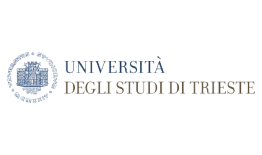
Project partner 1
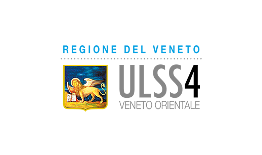
Project partner 2
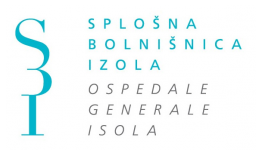
Project partner 3
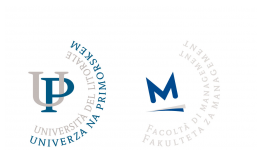
Project partner 4
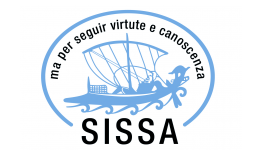
Project partner 5
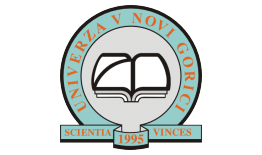
| Poster evento annuale 30/05/2018 MEMORI-NET_ITA.pdf ( 580 bytes, published on 12 June, 2018 - 09:30 ) | |
| Brochure 2018 brochure_2018.pdf ( 638 bytes, published on 24 June, 2019 - 17:38 ) | |
| Poster 2018 poster_2018.pdf ( 830 bytes, published on 24 June, 2019 - 17:38 ) | |
| Brochure 2019 - FINAL EVENT brochure_2019.pdf ( 687 bytes, published on 24 June, 2019 - 17:38 ) | |
| Poster 2019 poster_2019.pdf ( 914 bytes, published on 24 June, 2019 - 17:38 ) | |
| AGREEMENT 2019 MEMORI-NET-ACCORDO-AGREEMENT-SPORAZUM not signed.pdf ( 274 bytes, published on 30 June, 2021 - 22:03 ) |
THE MAIN GOAL OF THE PROJECT
MEMORI-net aimed to create a common institutional framework for managing the rehabilitation pathways for post-stroke patients, thanks to which all the centres involved in the various rehabilitation phases will adopt a common Diagnostic Therapeutic and Assistance Pathway (DTAP) with standardised protocols for evaluating patient deficits and for integrated cognitive-motor rehabilitation, and an ICT platform to facilitate cooperation among institutions, stakeholders and families.
SITUATION AT THE END OF THE PROJECT (30/06/2019)
The activity carried out during the 21 months has contributed to the creation of a common institutional framework in the social-welfare field to promote an efficient use of skills and public resources to coordinate personalized rehabilitation services aimed at patients who have suffered a stroke, taking into account cultural diversity and linguistic minorities.
There have been several targeted initiatives for the different target groups envisaged by the project, all documented on the project website and some references of which are reported below. Some of the main public events organized are the following:
There are numerous publications in newspapers, in various magazines, participation in scientific conferences, and in radio and television broadcasts.
In addition, a wide range of different educational materials have been published on the project website. It highlights the great work done for the development of a large number of video lessons subtitled in Italian, English and Slovenian for doctors and experts in the sector and patients, families and caregivers.
MEMORI-net has developed and made available an E-health solution that supports the integrated management of post-stroke patient rehabilitation according to the protocol defined by the project partners. This platform is made up of two components:
The project ended with the final event held in Trieste on 27 June 2019, where the ceremony for the signing of a joint agreement aimed at the adoption of the Operating Protocol shared between 4 hospitals operating on the two Italy-Slovenia borders took place: ULSS4 Veneto Orientale, ASUITS, Izola General Hospital and Sežana Hospital.